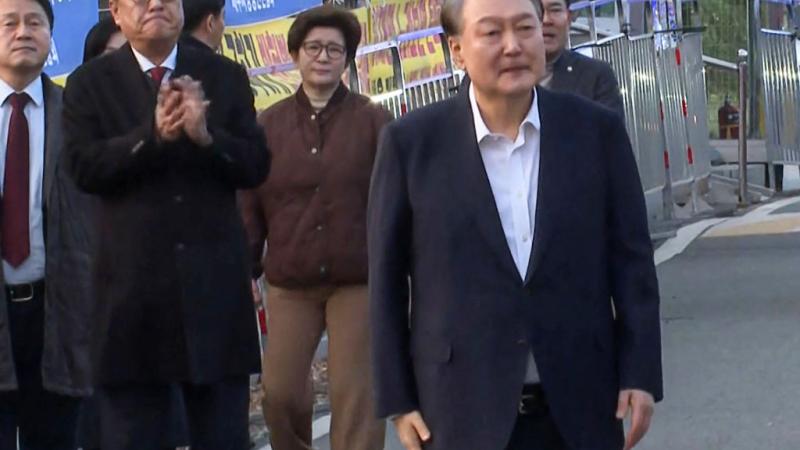Chinese Communist Party takes advantage of COVID control measures
"The Chinese Communist Party has found the best model for controlling people," a Chinese human rights attorney said.
The Chinese Communist Party has taken advantage of COVID-19 mandates to monitor citizens and limit the rights of anyone who may not align themselves with the regime by hiring millions to surveil citizens in the name of public health.
Human rights lawyer Xie Yang told The New York Times how police warned him not to visit the mother of a Chinese dissident in Shanghai.
Xie's health code app on his phone showed green, meaning it is fine to travel, so Xie went to the airport. Suddenly, his app turned red, and he was flagged as high-risk, despite the fact that he had not traveled in weeks from his home city of Changsha, which did not have any COVID infections.
Airport security attempted to force Xie to quarantine, but he resisted and accused government authorities of changing his health app to prevent him from traveling.
"The Chinese Communist Party has found the best model for controlling people," Xie told The New York Times in December. He was detained this month for "inciting state subversion" and "picking quarrels and provoking trouble," The South China Morning Post reported.
China is one of the last countries to still maintain a "zero COVID" strategy to fight the virus. This includes taking severe measures such as separating a 4-year-old boy from his parents and creating quarantine camps. In another example, a woman who was eight months pregnant miscarried because medical professionals refused to treat her due to the fact her COVID test result had expired just hours prior.
The Chinese Communist Party quickly realized the many other ways it could use contract tracing surveillance, such as to stop crime, pollution and political enemies.
The Economist published an article in December 2020 headlined "How the pandemic strengthened the Chinese Communist Party."
Achieving zero COVID in China and "restoring near-normal life in the country without a resurgence of the coronavirus, proved a godsend for the party's propagandists," The Economist writes. "No massage of the truth was required to highlight the contrast between conditions at home and the prolonged agonies of countries in the West. The party's efforts helped it to tighten its political grip and breathe new life into its grassroots organisations."
Xi has pointed to Hangzhou's "City Brain" center as model technology for addressing social problems. Hangzhou has used cameras since 2020 to monitor mask-mandate compliance, The New York Times reported. One city district even monitored electricity consumption to see if residents were following quarantine orders.
Millions of people are dedicated to enforcing virus mandates in China.
"China's pandemic controls have really produced great results, because they can monitor down to every individual," said Mei Haoyu, a dental hospital employee in Hangzhou, who volunteered at the start of the pandemic. "But if after the pandemic ends these means are still there for the government ... that's a big risk for ordinary people."
By March 2020, China had hired 4.5 million grid workers to fight the pandemic, according to state media. Cities are divided into grids with so-called grid workers to oversee COVID compliance within their assigned areas.
China had grid workers pre-pandemic to pull weeds, watch out for possible troublemakers and mediate disputes. Their responsibilities grew during COVID to include monitoring residents' testing and vaccination status and even helping those under lockdown to take out their trash.
Pan Xiyu, 26, is in charge of about 2,000 residents in Sichuan Province, where she distributes leaflets and sets up loud speakers to explain new mandates. "I have to be on call at all times," she told The New York Times.
Residents would argue with Pan at the start of the pandemic when she asked to scan their health app or told them to wear masks. She said her job is much easier now because, "Everybody takes [the mandates] more and more seriously and is very cooperative."
One judge in the Guangxi region noticed that the grid workers were better "than the census" at locating residents. According to a local news report from March 2020, the judge noted that "even some criminal fugitives have nowhere to escape," as translated by Google Translate.
He then thought: "Why not use this opportunity to have epidemic grid workers find people we couldn't find before, or send summonses to places that were hard to reach before?"
Former Hangzhou journalist Zan Aizong said he has refused to cooperate with the system, which has made it very difficult for him to move around the country. He also said it is difficult to explain his reasoning to government checkpoint employees.
"I can't tell them the truth — that I'm resisting the health code over surveillance," he told The New York Times, "because if I mentioned resistance, they'd think that was ridiculous."
















